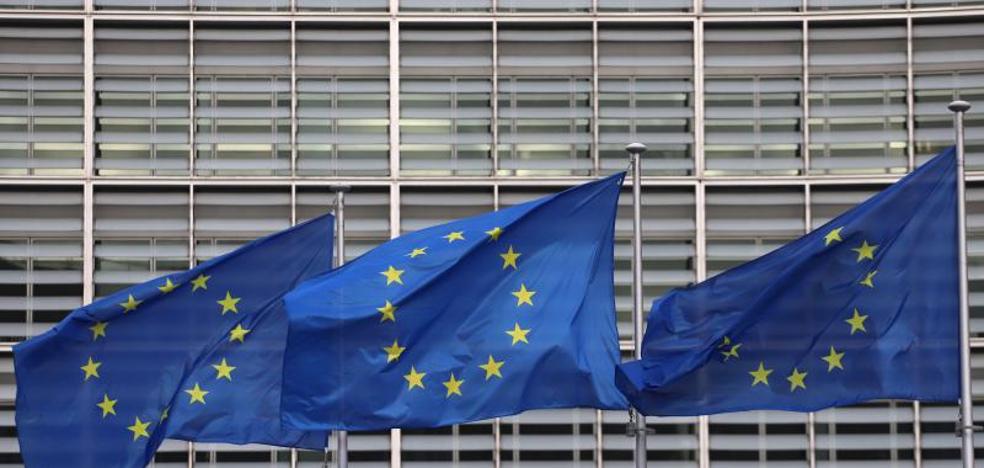Last June a report on the manoeuvres of the UAE in influencing EU policies was produced, the same man working on that report has now been arrested by Belgian authorities.
The latest EU scandal which has been coined ‘Qatargate’ by various western publications continues to make headlines, as the investigation into corruption and bribery at the European Parliament remains ongoing.
The scandal has fast turned into a big political crisis within the EU’s corridors due to various arrests in Belgium, spurring people to ask – who really is pulling the strings?
According to popular Italian news site, Dagospia, and which has been reverberated by several other outlets such as the American NY Weekly and the Italian newspaper il Giornale, there is likely a “little hand” in the scandal permeating the relationship between Qatar and the EU, pointing towards the United Arab Emirates.
According to Dagospia, it is Tahnoon bin Zayed Al Nahyan, the de facto head of the Abu Dhabi intelligence services, who spilled everything to Belgium, triggering the avalanche that is engulfing the European Parliament.
Sheikh Tahnoon, known as TbZ, has been leading agents of Abu Dhabi globally alongside his brother, UAE’s third President Mohammed bin Zayed Al Nahyan.
According to NY Weekly, “The reporting [of Dagospia] makes sense,” due the multiple times Abu Dhabi has lead various operations against the Qatar, including the UAE’s lobbying attempts at DC and the targeted media offensive on the 2022 FIFA World Cup.
In November, a classified report compiled by US Intelligence, stipulated that the UAE exerted ‘extensive efforts’ in ‘manipulating the American political system’.
Since 2016, the UAE has reportedly spent more than $154 million on US-based lobbyists, according to Justice Department records, and millions of dollars in funds and donations to American think tanks and universities, many that produce policy papers with findings favourable to UAE interests.
Favourable UAE interests appear to have also encompassed anti-Qatar campaigns. As per an Intelligence Online report linked to the same case, important evidence included previously unreported 2022 court filings that show various UAE-funded individuals fighting fiercely to quash a subpoena that would require them to turn over all communications and documents relating to a secret collusion in anti-Qatar PR campaigns, and to disclose payments received and from whom.
Coincidences
Among the coincidences reported by il Giornale which support the claim that the UAE is orchestrating the scandal at the EU in which Qatar is accused of corruption, lies the role of a small NGO called No Peace without Justice, founded by Italian radical Emma Bonino.
The secretary general of the NGO, Niccolò Figà Talamanca, was arrested at the same time as the other EU ministers charged with corruption, and has had his custody in prison extended by a Belgian court last week.
Exactly what the man is accused of is not yet known, as his name does not appear in documents being investigated, and his NGO appears to be registered in the transparency register of the European Parliament.
In Brussels circles however, it has been pointed that last June a report on the manoeuvres of the UAE in influencing policies was produced by the NGO Droit au Droit, and presented by Nicola Giovannini, who had worked on it together with Figà Talamanca and No Peace without Justice .
The 150-page report analysed in detail the streaks of disinformation within the media, official and parallel reports with parties, parliaments and think tanks created by the UAE lobby.
The Italian newspaper then questions why and how, but a few months later, an investigation is launched by Belgian secret services “on the straight of Abu Dhabi” damaging the NGO that presented the report, alluding to it being a ploy by the Gulf state to either to divert attention or retaliate.
NY Weekly on the other hand, has posed the possibility of the investigative media and lawmakers in Europe unraveling more on how the UAE, on orders of MbZ and TbZ, might have been influencing and exerting dominance within the EU by a paid network of influential and sponsored agents.
What is the EU corruption scandal?
The corruption case involves allegations of bribes related to Qatar and Morocco in an attempt to influence EU policies.
Authorities in Brussels have arrested and charged four people and seized at least €1.5 million in cash early December at the homes of one current and one former MEP, as Belgian authorities said they were probing corruption and money laundering, as per a Financial Times report.
Since, Qatar has been accused in various western media reports, and particularly after the Belgian federal prosecutor’s office sent a media statement saying the police “suspected a Gulf country of influencing economic and political decisions of the European parliament.”
According to European Parliament statistics, the impact of corruption within the EU from all member states combined amounts to nearly 1,000 billion Euros, or 6.3% of its total GDP, which according to the writer “proves that the problem is not so much outside as it is inside the fruit.”
With over 12500 organisations registered with the European Parliament representing over 50,000 people, it is likely that the current corruption scandal is not the only one and that other foreign states and powers have meddled and paid for influence within EU policies.
As it stands, the European Parliament does not have an internal control body, unlike the European Commission, which has the European Anti-Fraud Office (OLAF).







